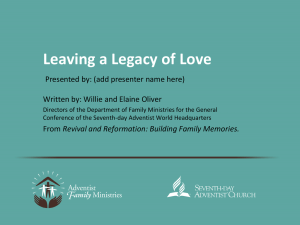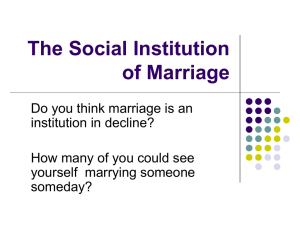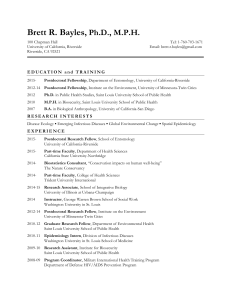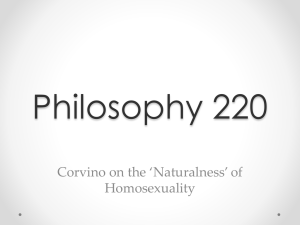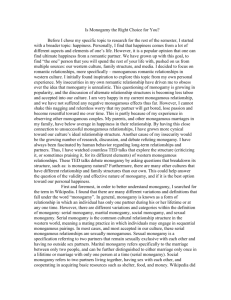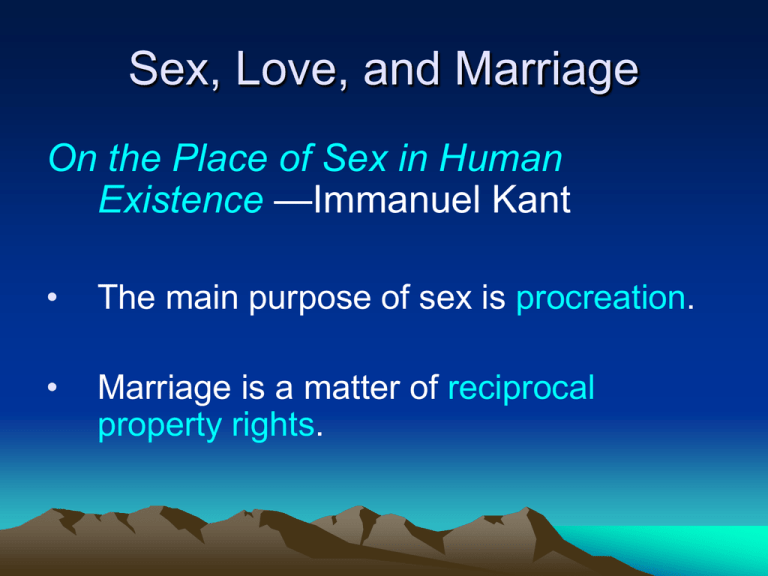
Sex, Love, and Marriage
On the Place of Sex in Human
Existence —Immanuel Kant
•
The main purpose of sex is procreation.
•
Marriage is a matter of reciprocal
property rights.
Sex, Love, and Marriage
John McMurtry: Monogamy: A Critique
Michael D. Bayles: Marriage, Love, and Procreation:
A Critique of McMurtry
•
McMurtry insists that monogamy is a massive socialcontrol mechanism.
•
Bayles thinks that Kant’s (and McMurtry’s) view of
marriage as “mutual ownership” is pure nonsense.
•
Bayles contends that monogamous marriage promotes
deep, personal relationships and provides a good
context for raising children.
Sex, Love, and Marriage
Monogamy: A Critique —John McMurtry
Marriage, Love, and Procreation:
A Critique of McMurtry —Michael D. Bayles
Bayles says McMurtry’s contention that
monogamy restricts the care of children is
not well founded.
Bayles wants us to reject vulgar hedonism
and replace it with eudaimonism.
Sex, Love, and Marriage
What’s Wrong with Adultery? —Bonnie Steinbock
– One reason adultery is wrong is that it
generally involves promise-breaking.
– Genuinely open marriages are not immoral.
– There is a need for concentrated
involvement in marriage.
Sex, Love, and Marriage
We Have No “Right to Happiness” —C.S. Lewis
In intimate relations, we do not have a right
to be happy.
A society in which conjugal infidelity is
tolerated must always be, in the long run, a
society adverse to women.
Sex, Love, and Marriage
What Do Grown Children Owe Their Parents? —Jane
English
Grown children are not obligated to repay a debt of
gratitude to their parents.
The relationship between children and their parents
should be one of friendship.
The duties that grown children have to their parents
result from friendship.
Sex, Love, and Marriage
Why Homosexuality Is Abnormal —Michael Levin
A Defense of Homosexuality —John Corvino
Levin contends that homosexuality is abnormal
because it is a misuse of bodily parts.
Corvino says that from the fact of evolutionary
adaptation in humans, we cannot conclude that they
should behave in a particular way.
Corvino argues that even if homosexual people were
more likely to commit illegal or immoral acts than the
general population, it would not follow that their
homosexuality causes them to do these things.



